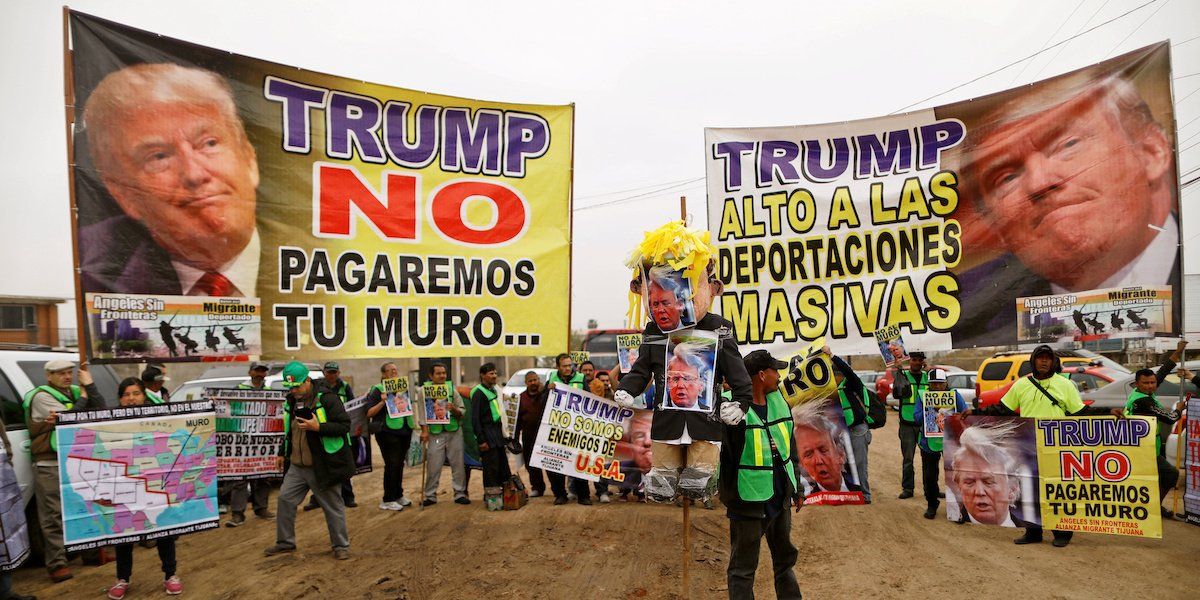The president-elect has promised to deport between 15 and 20 million people, which is more than the roughly 13.3 million undocumented people estimated to be residing in the US. “There's a lot of uncertainty around how high deportations could go under Trump,” says Eurasia Group’s US analyst Noah Daponte-Smith. “I'd roughly estimate he will deport between 500,000 and 600,000 in 2025.” That would mark an increase from the current number of approximately 200,000 annually. But, Daponte-Smith added, “there's room for that number to move upward.”
What are Trump’s immigration plans? On the campaign trail, he promised to deport millions of immigrants living in the country illegally. So far, the president-elect has tapped immigration hardliners likeStephen Miller, Tom Homan, and Gov. Kristi Noem to serve as his deputy chief of staff, border czar, and chief of Homeland Security, respectfully – key positions for immigration and border security.
In a Fox News interview, Homan said deporations would prioritize “public safety and national security threats” as well those who disobeyed court orders to leave the country. For logistical ease, ICE would likely begin with single adults – although Homan defended Trump’s family separation policy and said that families “can be deported together.”
ICE would also likely prioritize immigrants from countries with Temporary Protected Status, because it has reliable biometric data on recipients, making them easier to find. TPS authorizes immigrants to live and work legally in the US when their home country has been deemed unsafe for return. Within TPS recipients, ICE would probably start with countries that accept the most return flights of deportees. However, Venezuela, which has the most people in the program, does not accept deportees. So Trump’s only option would be sending them to a third-party country, which would likely be met with legal battles. The TPS countries accepting the most removal flights are Haiti and Honduras.
Trump faces headwinds. On the logistics side, ICE already has 38,863 people in custody, and it “simply doesn’t have the capacity to handle one million deportations a year right now,” says Daponte-Smith. “If Republicans beef up funding for ICE and other enforcement agencies next year, that would help significantly,” and a united Congress will make this easier for them. But he also doesn’t buy that deploying the military would be much help picking up the slack. “The National Guard has no experience with deportations, and I doubt it would be easy to convert them to that purpose,” he says. Still, declaring a national emergency would also give the president more power to devote funds to the issue without congressional approval.
The other big headwind is political. “Mass deportations will create a huge political blowback, potentially involving large-scale street protests,” says Daponte-Smith. Even if Trump and his team are not responsive to this, it “could be an issue for congressional Republicans” ahead of the 2026 midterms.